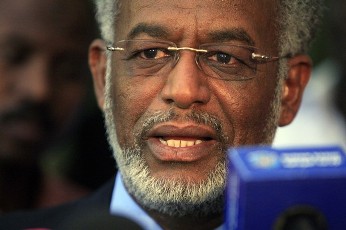Lawmakers question effectiveness of Sudan’s foreign policy
November 27, 2013 (KHARTOUM) – Sudanese foreign minister Ali Karti was grilled on Wednesday by members of the national assembly over the country’s policy on dealing with Arab, regional and international communities.

Sideeg described Karti as someone who moved from a blue collar role to wearing fine suits and ties.
While the lawmaker stressed he has nothing personal against Karti, he noted the US does not have “political amnesia” over Karti’s role as PDF chief during the civil war with the South.
A visibly angry Karti responded by advising Sideeg to submit a memo with his grievances to president Omer Hassan al-Bashir, saying that he had been selected for his post and had not sought it.
He also accused certain circles within the government of undermining the work of his ministry, alluding to Sudan’s 2009 decision to expel more than a dozen aid agencies in response to an arrest warrant issued by the International Criminal Court’s (ICC) for Bashir.
Karti said it was his view that humanitarian groups should have been contained and put to optimal use rather than being ejected from the country, thus harming Sudan’s relations with the international community.
Meanwhile, Sudan’s position on the Palestinian-Israeli conflict has divided the parliament, with some saying Khartoum’s passionate pro-Palestinian stance would not come without a price.
However, the majority of parliamentarians have called on Sudan to maintain its stance, despite the issue causing tensions with Washington.
Karti said while the government must stick to its principles, including those with regards to the Palestinian issue, they must also reach out to the US and Europe.
“If the role of the foreign ministry is to scream and weep over adhering to principles and sticking to them any party can do that”, he said.
The minister disclosed that about 20 US companies had expressed interest in investing in Sudan during a meeting which took place in Washington that was arranged by the Sudanese embassy there and approved by the Office of Foreign Asset Control (OFAC) which enforces sanctions.
According to Karti, the main obstacle facing companies was how to wire money to Sudan given the sanctions, but they agreed to carry it through a third party.
Sudan has been on the US blacklist of states sponsoring terrorism since 1993 over allegations it harbours Islamist militants, despite reports of Sudan being a cooperative intelligence partner of Washington in the so-called ‘war on terror’.
Sudan has also been subject to comprehensive economic sanctions since 1997 over terrorism charges, as well as human right abuses. Further sanctions, particularly on weapons, have been imposed since violence broke out in the western Darfur region in 2003.
Despite relentless efforts by Khartoum to normalise ties, Washington has continued to renew the sanctions, although conditions have been eased in recent years in certain sectors, including agriculture.
Karti also acknowledged the existence of border violations, particularly Ethiopia and Chad, but noted that they are individual incidents and not condoned by the states in question.
He revealed that work is underway to demarcate the borders with Ethiopia that will include all but three areas.
When asked about the country’s tense relations with Arab Gulf states, Karti asked for a classified session, saying any discussions would contain “sensitive” information that cannot be shared with the media.
MP Abdullah Masar blasted Sudan’s ongoing ties with Iran, saying that the latter is “ungenerous” and calling for relations between the countries to be limited.
Shiite power Iran sees the pre-dominantly Sunni Gulf as its own backyard and believes it has a legitimate interest in expanding its influence in the region. Arab Gulf states, however, say that Iran is stoking tensions by inciting Shiite populations in Bahrain.
Saudi Arabia and other Gulf states have privately expressed their unhappiness about Khartoum’s growing relations with Tehran.
Iranian warships, which regularly patrol the Red Sea, have docked three times in Port Sudan since last year.
This may explain why the Saudi government, for instance, has been reluctant to assist Khartoum financially following the secession of the oil-rich South despite pleas by Sudanese officials, including president Bashir.
The Sudanese president has also been unable to hold bilateral talks with any senior Saudi official since March 2012, despite repeated non-official visits to Riyadh.
Gulf states are among the biggest investors in the country and have funded a large sugar plant and Sudan’s only shopping mall. Diplomats told Reuters last year that Sudan’s central bank has toured the Gulf several times, trying to drum up support for more funding.
(ST)
